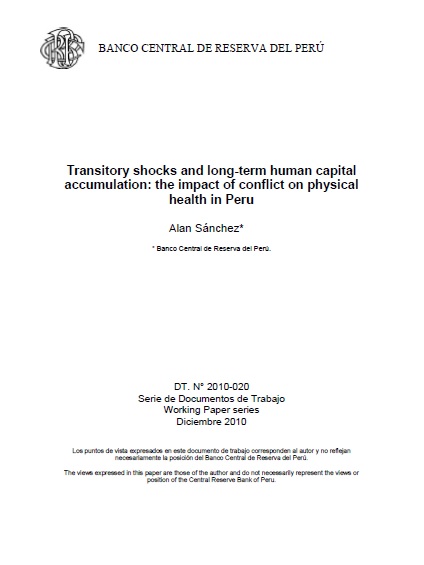Transitory shocks and long-term human capital accumulation: the impact of conflict on physical health in Peru
Abstract
The recent literature on human capital highlights the importance of investments during the first few years after birth as a determinant of economic
outcomes later in life, including labour productivity. This paper assesses
the relationship between conflict exposure –a transitory, aggregate, shock–
and early nutrition. The relationship between conflict exposure and human
capital outcomes can be put into doubt due to the endogenous nature of
conflict. In this paper I use a rich dataset that permits me to trace the
intensity of a country-specific, large-scale, conflict across regions and over
time at the monthly frequency over a 20-year period. I use this data to link
conflict exposure prevalent around the time of birth to child-level outcomes
of birth cohorts born over an analogous time period. The identification
strategy exploits differences in the intensity of exposure between siblings in
turn determined by year-month of birth. Results show that, on average,
early exposure to conflict did not have an effect on infant mortality but had
large negative effects on short-term nutritional outcomes, particularly for
the poor. These results suggest that, unless compensatory investments were
at place, the Peruvian conflict might have had long-term effects on human
capital accumulation through a nutritional channel.




